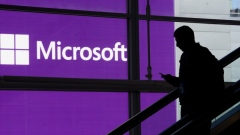Dec 5, 2023
Senegal Is Ranked Alongside Junta-Led Nations by Rights Group
, Bloomberg News

(Bloomberg) -- Civil liberties have deteriorated to such an extent in Senegal that it now ranks alongside countries run by military juntas, according to an advocacy group that monitors rights globally.
The West African nation garnered the second-worst ranking that a country can be given by CIVICUS Monitor, the Johannesburg-based group said in a statement on Wednesday. The decline in its ranking comes after President Macky Sall’s administration sought to stifle dissent in the lead-up to presidential elections scheduled for February, it said.
“Senegal used to be hailed as a beacon of relative openness and democracy in West Africa,” CIVICUS Monitor researcher Ine van Severen said in the statement. “That’s not the case anymore.”
Senegal has been wracked by sporadic and increasingly violent protests since March 2021, when opposition leader Ousmane Sonko was arrested and charged with rape. The popular politician has subsequently been convicted of morally corrupting a youth and charged with plotting an insurrection — making it unlikely that he’ll be able to run in the upcoming elections.
Investors are watching the race to succeed Sall for indications on policy continuity. The nation’s dollar bonds have outperformed most emerging-market peers this year, with a total return of 9.1% compared with the developing-nation average of 7.7%, according to Bloomberg indexes.
CIVICUS dropped Senegal’s ranking from obstructed to repressed, placing the country alongside Mali and Chad, both of which are run by military governments, and Tunisia, which has been wracked by political tension since President Kais Saied assumed almost absolute powers in 2021.
Violent Protests
Security forces in Senegal have killed opposition supporters in the streets and jailed critics, including activists and journalists during “a tense campaign season,” Van Severen said. “There is serious concern that violations will continue and possibly intensify ahead of the February 2024 elections.”
The vote will be the first in Senegal’s post-independence history in which the incumbent isn’t a candidate, after Sall ruled out seeking a third term earlier this year.
Once considered the biggest threat to Senegal’s ruling Benno Bokk Yakaar coalition, Sonko, 49, has faced a succession of legal setbacks over the past two years. His candidacy has been in limbo after being convicted of publicly insulting a minister and facing charges of plotting an insurrection, criminal conspiracy and spreading fake news.
At least 40 people died in violent protests after Sonko’s March 2021 arrest and June 2023 conviction for corrupting a minor, according to Amnesty International. In August, the authorities shut down mobile Internet services in much of the country, banned social media TikTok and dissolved Sonko’s Pastef party.
Elsewhere in West Africa, Liberia’s ranking dropped 10 points before October elections in which President George Weah ceded power to Joseph Boakai in the country’s closest ever runoff vote. Benin was upgraded from repressed to obstructed, the biggest improvement among 16 countries in the region.
--With assistance from Robert Brand.
©2023 Bloomberg L.P.








